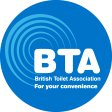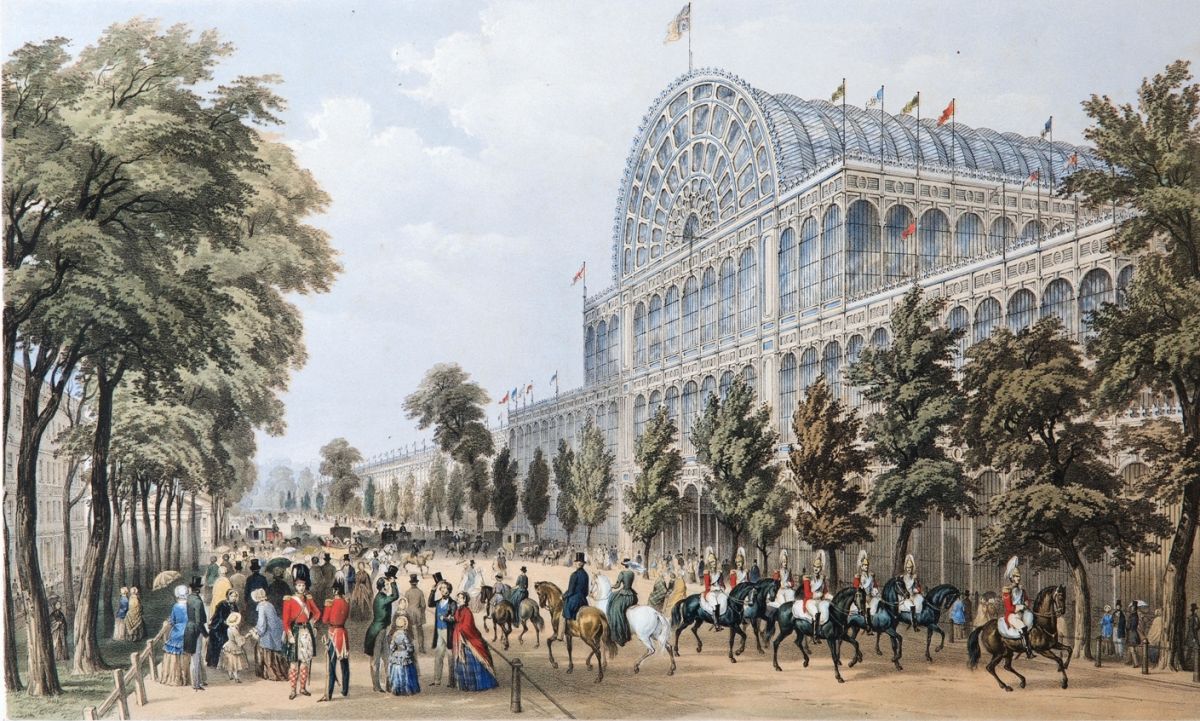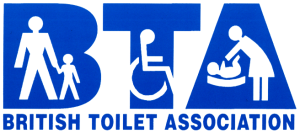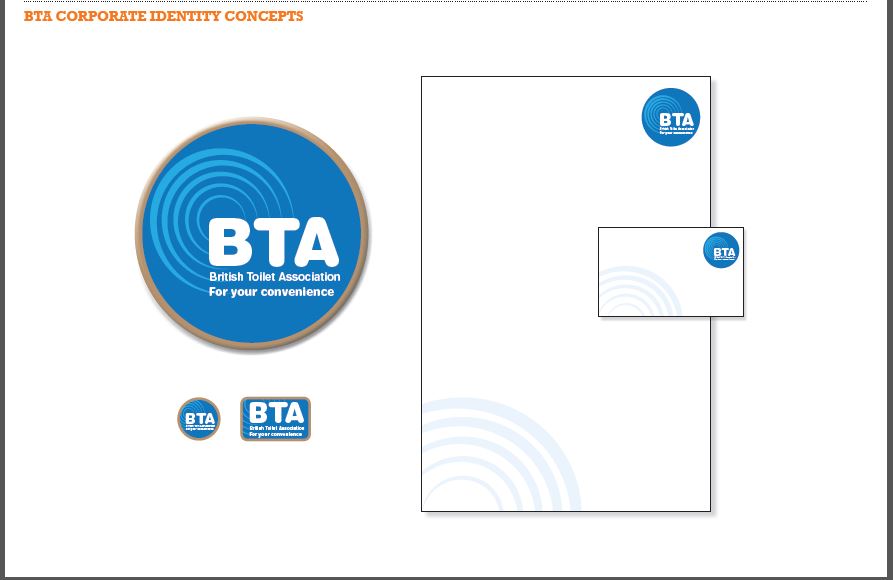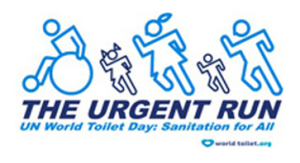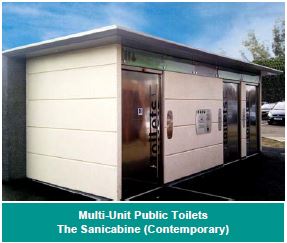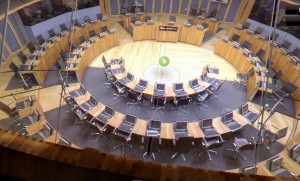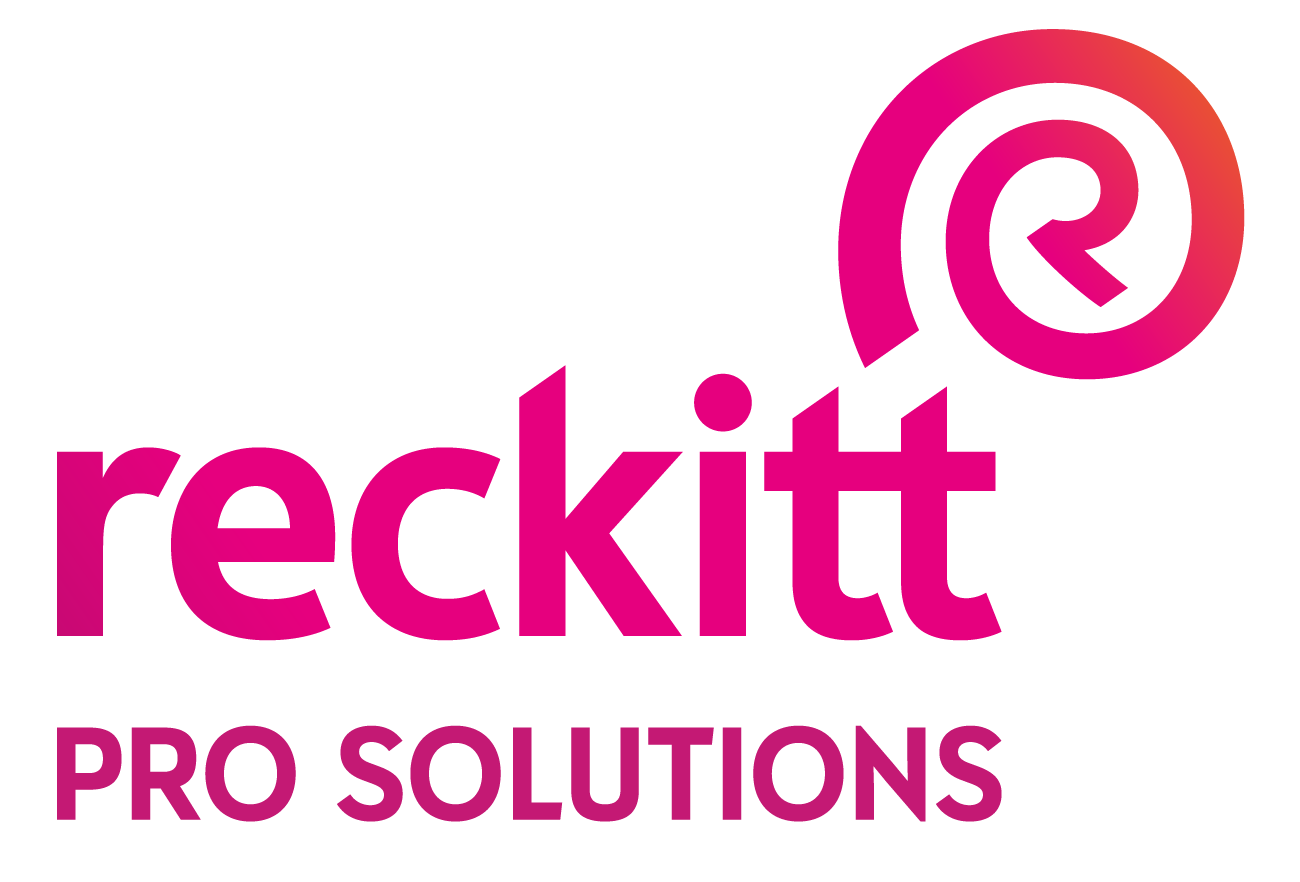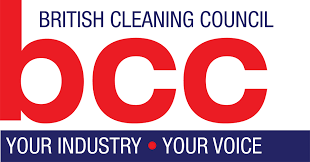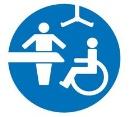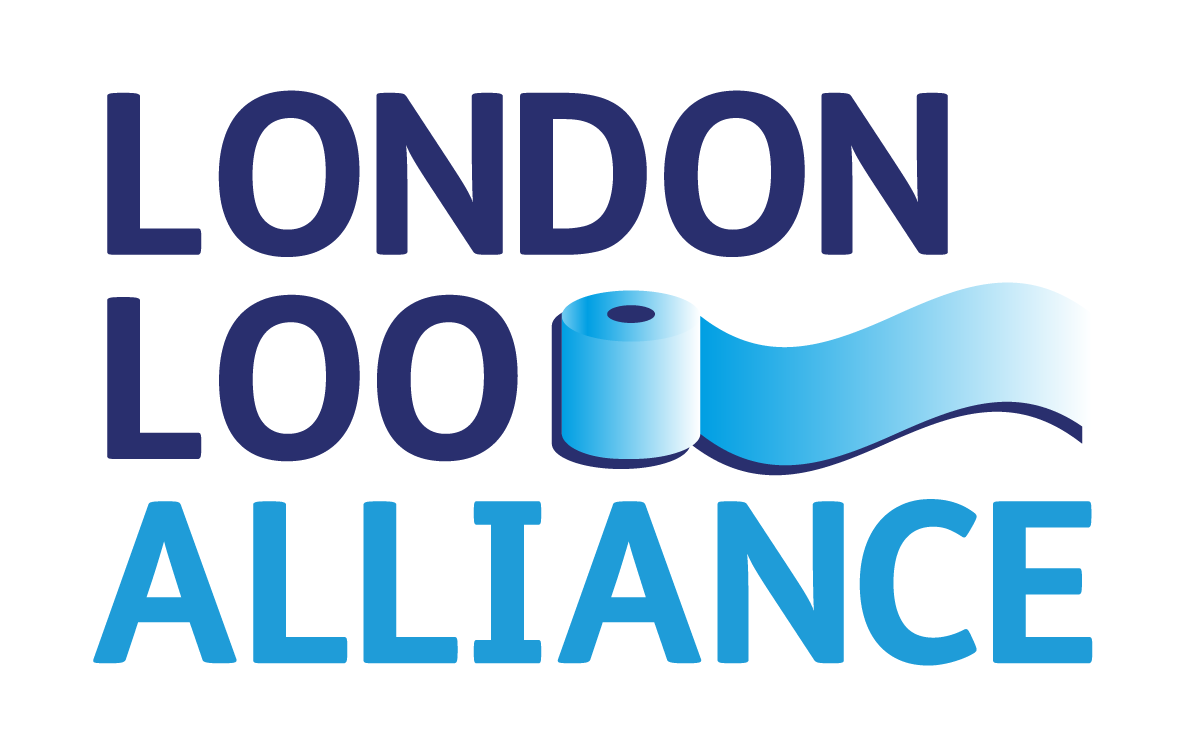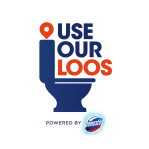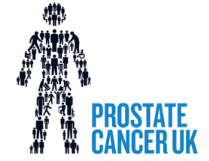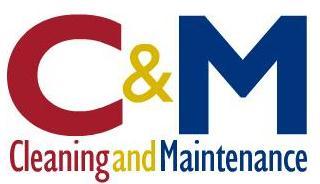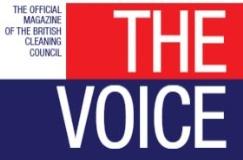The Manchester Cleaning Show 2016

Organisers announce new regional event in Manchester
The British Cleaning Council and Quartz Business Media, joint organisers of the UK’s largest dedicated cleaning and hygiene exhibition – The Cleaning Show – have announced a new event following the hugely successful event at London ExCeL earlier this year.
The new Manchester Cleaning Show will be held 6-7 April 2016 at Event City and is positioned deliberately to sit in the middle of the Cleaning Show biennial cycle, so that manufacturers, distributors and service suppliers to the industry can easily participate in both events. Unlike the Cleaning Show in London, the expectation is that the audience will be more regional and smaller in scale; however the event will be content rich and full of opportunities to network and do business.
Further news of a conference will be announced soon
For further information please contact:
Vanessa Van Santen – Smith, Sales Manager
T: +44 (0)1737 855 041, F: +44 (0)1737 855 034
E: vanessavss@quartzltd.com
www.cleaningshow.co.uk/manchester

SPECIAL NOTE
The BTA Annual General Meeting will take place on
Wednesday 6th April at 2:00pm at this event
For further details please see the AGM post on the BTA Website
PSE Expo 2016

Portable Sanitation & Welfare Expo 2016,
24th – 25th February
Ricoh Arena, Coventry
Following on from the hugely successful expo last year, the 2016 event will provide an excellent platform for you to network with other professionals in the portable sanitation, liquid waste, modular buildings and welfare unit sectors.
Seminars will explore the profitable opportunities available to you and best practises in the industry. Topics include: “Social media tips and tricks to grow your business”, “Developing and embedding effective policies and procedures for lone workers” and “Diversify into luxury & expand your business”.
Register at www.ps-expo.com before the 20th February for your chance to win 12 months subscription to essential business tools for 5 staff, worth £3,000 with Advance IT Group.

Public In-Conveniences

I am very pleased to announce that ‘Public In-Conveniences – a practical guide to improving standards’ is now available, free of charge, on the dedicated website: www.publicinconveniences.org.uk
Public In Conveniences – a practical guide to improving standards
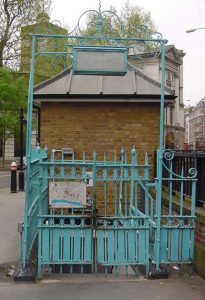
is a brief and easy-to-use guide for organisations which have a special interest in the provision of “away from home” toilets.
Clearly explaining the requirements of different sections of the population, dealing with policy issues, advising on the design of cubicles, nappy changing facilities and many other issues, this carefully researched, free guide suggests ways to improve standards and encourage good practice.
The information provided is current and includes direct links for those providers who require more detailed, specific information. The guide incorporates two sections ‘Further Reading’ and ‘Sources of Further Information’ which include current legislation and British Standards.
Poor provision of public toilets adversely affects the health, dignity and life-style of a very substantial proportion of the population. In order to spread awareness, please recommend this free guide to a colleague.
Public In-Conveniences provides a concise, very informative guide for individuals and groups campaigning for improvements in local provision of “away from home” toilets. This free guide enables them to make strong, fact-based approaches to providers, and to make direct contact with experienced organisations.
Updated by experts to meet current requirements for information, the third edition of this concise, easy-to-use, free guide, identifies many issues which need to be considered by organisations having a special interest in the provision of ‘away from home’ toilets. Carefully researched, it suggests ways to improve standards and encourage good practice.
Truckers’ Toilets Newsletter July 2016
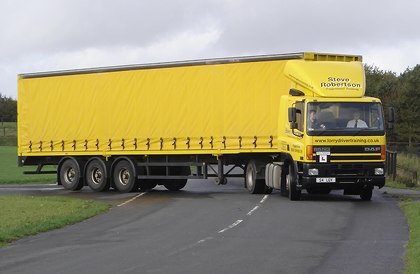
TRUCKERS’ TOILETS UK
Campaign to improve the health & well-being of lorry drivers
July 2016 – NEWSLETTER 4-1
DEPARTMENT FOR TRANSPORT meeting: This took place at the Department of Transport in Horseferry Road, London on Friday 15 July and was an open and frank session. Taking part were Duncan Price the Head of Freight, Operator Licensing and Roadworthiness [we’d met at the RHA Annual Lunch] and David Pope, Freight Division [It was good to meet him and we got on well]. The first half of the meeting centred on HSE issues with a telephone link to the Acting Head of the Transport Sector at HSE. We discussed various concerns and came up with a list of ways forward. The second half focused on facilities on various routes. Our discussions centred around solutions suggested in Laybys, Loos & Lorry Drivers, a document that TTUK compiled with input from drivers. A further list of actions was made. This was a meeting in which the problems were highlighted and ACTIONS to improve the situation were made. There’s a lot to do, but we now have positive avenues to address and support for what we’re trying to achieve. This is just what we wanted. Watch this space!
ROAD HAULAGE ASSOCIATION: Following on from the DfT meeting Gill updated the RHA from TTUK’s perspective and was pleased at the positive response. See more under HEALTH
BREXIT: Well, it’s all change in the new cabinet and Chris Grayling is now Secretary of State for Transport. End of communication – not that there was any – with Claire Perry who resigned as Rail Minister and Richard Burden MP, Shadow Minister in Labour’s Transport Team who also resigned but who had been supportive of what TTUK is working to achieve. However MPs are not necessarily the first port of call so all is not lost. It is the communication with appropriate Government departments that matter to us. Once we’ve got the actions and solutions – and evidence – clarified and even piloted, it will be then that we will turn to our MPs to sanction the decisions. However the template for drivers to write to their MP is now available, so feel free to make your feelings known.
GOOD NEWS re AMAZON: Apparently Amazon is increasing HGV parking at their Dunfermline centre [Dunfermline Press 21/6]. Whilst this is mainly due to complaints from local people and MPs it would seem that Amazon is taking the opportunity to include welfare facilities which should reduce the current roadside urination rate. Apparently the council introduced parking restrictions but the chair of the City of Dunfermline area committee, Councillor Helen Law is quoted as saying ‘There are no facilities for the drivers and I don’t think it’s right that they can be driving the length of the country for hours and be left with no facilities.’ It’s a start but how drivers manage in the meantime we’re not told. Comments anyone? [thanks to David S for the article]
HIDDEN TALENTS: Our Ed had experience of the hidden talents of lorry drivers when she was caught up in a heavy traffic jam recently. Due to an accident cars and lorries were backed up along a busy stretch of dual carriageway between London Colney and Hatfield in Hertfordshire. Seeing that emergency services needed access out came the lorry drivers who tested the verges [by jumping on them] and then directed cars, lorries, vans onto both sides of the road enabling the fire engines and police vehicles to pass through. Impressive! She also learned that many lorry drivers are first aiders. We do need to see beyond the vehicle and appreciate the professionalism of the drivers behind the wheel. This is one of the reasons that progress in our campaign is slow – a large number of us, the public and transport organisations too, just don’t think about the person who is behind the wheel and then wonder why there’s a driver shortage!
MORE AWARENESS! June 24th was the day that the In/Out Referendum result was announced and it was also the start of Utopia Fair which took place that weekend at Somerset House. The ‘Around the Toilet’ team from Sheffield Hallam University, Sheffield had 2 adjoining stands ‘Travelling Toilet Tales’ and ‘Servicing Utopia’ where there were opportunities to listen to people’s stories, design a loo and even a city. It was a fantastic opportunity to get people thinking about lorry drivers and other mobile workers. Some visitors to the stands had family members who were drivers whilst others admitted that they’d never thought that drivers had difficulties accessing a loo. Gill visited most of the stands in the courtyard to spread the word and found a lot of interest. To crown a successful weekend the taxi driver Gill hailed promised to distribute our Lorry Drivers Need Loos handout to his colleagues in the ranks he visited. Very encouraging!
SOME FRUSTRATIONS TOO! Just a little while back teachers went on strike about their working conditions presumably with union support leaving parents with the difficulties of finding childcare. OK that’s their decision but at least teachers have access to toilets during their working day – not always easy to visit when teaching a class but loos are available within the school. Lorry drivers risk a fine if they use the roadside as a loo because they do NOT have easily reachable access to toilets during THEIR working hours and they do not appear to have such active support from the Unions either. Why is there this discrimination? How did it get to this situation? Why aren’t the Unions actively addressing the problem for the mobile sector? [Note: our Ed was once a teacher]
TOILETS CONTRIBUTE TO HEALTH: One of our supporters, Mick, is doing a brilliant job talking about the importance of toilets to health and has been successful in petitioning Dunblane Community Council to reopen its loos. He kindly credits the success to the health issues Gill highlighted in a presentation at Unite the Union some while back together with the accompanying handout which has been incorporated into Unite guidance. Health and the effects on local people rather than tourism he thinks were the reasons for the success. Congratulations Mick!
WHAT A LOT OF RUBBISH! The Cleanzine editorial recently [14/7] highlighted the amount of rubbish left at the roadside and the cost of clearing it all up. The article reports that Highways England had a ‘litter strategy’ to try to educate motorists on the problems of discarding litter. After all not only does it look awful but it can be hazardous to humans as well as wildlife. However it seems that collection rates have had to be increased ‘with 139,952 bags filled between 2015 and 2016’. We are all being urged to keep a bag in our vehicle and take our rubbish home with us and why not? However using the roadside as a toilet is not so easy to address as needing the loo is not a choice! This is something that is also hazardous and requires attention – fast! But imposing a fine is NOT the answer.
MORE ON HEALTH: Thanks to another of our supporters Gill was encouraged to learn more about kidney infections. According to the NHS website on kidney infections dated 19 Dec 2014 [due to be updated this year], 1 in 830 people per year get an infection – and women are 6 time more likely to get a kidney infection than men. An interesting blog <senwaxa.blogspot.co.uk> suggests that lorry drivers are prone to kidney and bladder
infections because they’re sitting a lot. In addition the lack of toilets encourages the use and reuse of bottles for peeing but these can harbour germs which in turn leads to infection if not kept scrupulously clean. TTUK has not been able to find the number of drivers who contract kidney infections but the danger through the lack of toilets is ever present!
ACTIONS ON HEALTH! The DfT, RHA and HSE are keen to learn what excuses are given to drivers who are refused access to toilets. TTUK is working with these organisations who are now taking this scenario seriously so your input is vital. TTUK already has a list of ‘evidence’ but before passing this on [no names will be included] an update from drivers would be appreciated. So do tell us about any ‘excuse’ you’ve been given, especially this year but earlier too. You can post it on the TTUK facebook page, send a message or email Gill directly.
SNACK VAN + TOILET? TTUK is investigating the possibilities. Reaction from the first snack van owner approached was very positive. As with many things life ain’t that simple and there are various aspects of this which require solutions but it’s a good start.
TRUCKERS’ TOILETS UK www.facebook.com/TTUKcampaign
Next issue of the Truckers’ Toilets UK newsletter will be August 2016
Gillian Kemp
gillian.kemp@ntlworld.com
@atoileteer [Twitter]
A Special Meeting with Mr Toilets
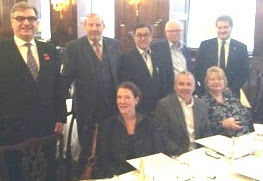
Monday 9th November 2015
London
Directly following our latest management meeting, held in Westminster, we were delighted to meet with Mr Jack Sim the founder and CEO of the World Toilet Organisation. Many of you will remember that in 2005 the BTA hosted the World Toilet Summit in Belfast – the first and only time that it has been staged in the West. This event brought over 400 delegates from over 30 countries to the UK to discuss and debate toilet related issues and new technologies.
Jack was in the UK to visit and give lectures at both Oxford and Strathclyde universities. He holds a professorship in environmental studies and was speaking to students on the social and economic impacts of sanitation and hygiene issues on developing countries, business and the populous.
We had an extensive opportunity to hear about the work of the WTO and were able to confer some of our development plans for the coming year. He was excited to hear about Toilet Map and the exciting work that we are doing with Mencap and Pamis to develop this Pilot project. Additionally we spent some time discussing the difficulties that the BTA has continued to experience trying to get the government to recognise the fact that toilets are not about Waste Management but in reality Health & Well-being, Equality, Social Inclusion and personal Dignity.
Jack was astounded to hear that an estimated 50% reduction in public provision has occurred in the last 10 or so years. “where are these people going” he asked and we discussed Community schemes and Private providers. However, he recognised our concerns that independent public provision is major necessity for a transient nation and outdoor workers. Opening times are usually greater and facilities are usually visible from the moving vehicle.
He asked about street urination and defecation and we had to confirm that the incidence of this disgusting practice is now being increasing reported. “You cannot allow the UK to continue to loose its fantastic reputation as the founder of modern sanitation.” The WTO continues to wage a constant fight for the rights of over 2 billion inhabitants who have little or no access to fresh water or proper sanitation. “Don’t tell me the United Kingdom is going to slip backwards into a third world position where disease and sickness is rampant from the viral infections transmitted from dirty streets” He has agreed to write to our PM & the government outlining the absolutely disastrous path we are currently treading if closures do not cease.
We have asked for the WTO to consider granting us an opportunity to host a future summit – perhaps between 2018 – 2020. In principle Jack was extremely keen for this to become a reality and the BTA management team will now consider and debate this possibility. It is expected that he event would be set for London and we would need to secure some sizable sponsorship partners to cover the considerable costs that could be expected.
New Corporate Logo
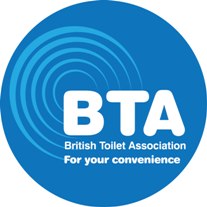
New BTA Logo announced by Management Committee
After around fifteen months of research, consultation and deliberation the BTA Management Advisory Committee has finally selected a new corporate logo to help the BTA update its image, appeal and visibility. As with the old image the new logo will very quickly become recognised as an industry standard.
Extensive testing and questioning of the friends, colleagues, the public and other interested parties brought to light a number of changes that needed to be addressed. Concern was raised that the current logo seemed to be non-inclusive as it clearly showed; a man holding a child’s hand, a single wheelchair user and a female changing a baby. The association works and campaigns for an ever increasing number of user groups and so it was agreed by the committee that we should no longer use an image that only highlighted a small fraction of the groups we endeavor to support.
The working and design criteria that was set then was to recreate a logo and offer up an image that was:
- easily recognisable and quickly identified – as before
- carried a simple strap-line message
- modern, clean and smart
- could be easily recreated on all media
- would allow future merchandising
The original strap-line considered was “At your Convenience” but this was recently superseded by “For your Convenience” offering the reader or potential customer a marketing opportunity to bring the BTA in to help with toilet related problems and dilemas.
Above is the final concept design that was selected and agreed by the Management Committee and this image will now be attributed to all future printing and design publications. The new design will be systematically incorporated into the organisations marketing materials over the next few months.
The previous logo will remain protected and be maintained in house for record and reference purposes.
World Toilet Day 2015
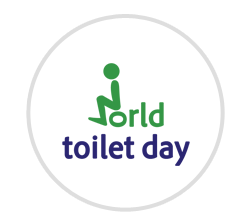
Thursday 19th November 2015
The World Toilet Organization was founded on 19 November 2001 and the inaugural World Toilet Summit was held on the same day, the first global summit of its kind. They recognised the need for an international day to draw global attention to the sanitation crisis – and so they established World Toilet Day on 19th November. WTD has continued to garner support over the years, with NGOs, the private sector, civil society organisations and the international community joining in to mark the global day, and it continues to promote global discourse and debate on toilets and sanitation.
World Toilet Day is THE day for action. It is the day to raise awareness about all the people who do not have access to a toilet, and the urgent need to end the sanitation crisis. And it is the day to stand up (or sit down or squat if you prefer) to do something about it.
Why Do We Need A Day For Toilets?
The ‘silent’ sanitation crisis is a ticking time bomb which affects billions of people around the world.
When the World Toilet Organization was founded in 2001, the subject of sanitation received little media attention and it was severely neglected on the global development agenda. Sanitation has become more of a priority for world leaders in the 14 years since the World Toilet Organization was founded, however the current level of prioritization is still far from what is needed, given the scale and impact of the sanitation crisis. It’s time for toilets to be treated as an urgent global priority.
What’s So Urgent?
- – 1 in 3 people on this planet still don’t have access to a clean and safe toilet.
- – 1,000 children die each day due to poor sanitation.
- – And better sanitation supports better nutrition and improved health, especially for women and children.
We can’t wait while a lack of access to sanitation affects health, education, gender equality, nutrition, the environment and the economy! And in the words of WTO founder Jack Sim, “What we don’t discuss, we can’t improve.” We need to continue to address the taboo nature of toilets and shine a spotlight on sanitation each World Toilet Day.
The Impact
World Toilet Day is celebrated globally by NGOs, UN agencies, the private sector, civil society organisations and the international community. In 2013, a joint initiative between the Government of Singapore and the World Toilet Organization led to Singapore’s first UN resolution, entitled “Sanitation for All”, calling for collective action to address the global sanitation crisis through the commemoration of World Toilet Day. The resolution was co-sponsored and adopted by 122 countries at the 67th session of the UN General Assembly in New York. On July 24, 2013, World Toilet Day on 19 November became an official UN day. Each year WTD calls on the global community to do more to address the sanitation crisis.
How to Raise a Stink for UN World Toilet Day
Sustainable sanitation is a matter of dignity, equality, and safety, and is crucial to improving the health and wellbeing of one-third of humanity. So what can you do to help make ‘sanitation for all’ a reality this World Toilet Day? Whether you want to raise a stink and build awareness of the sanitation challenge, advocate for change, fund raise for us, hold an event, or join an Urgent Run, we want you to celebrate UN World Toilet day in a way that suits you best. Here are just a few ideas on how you can join the global ‘movement’ and be a part of the change.
The Urgent Run
The Urgent Run is World Toilet Organization’s annual event for UN World Toilet Day to call for urgent action to end the sanitation crisis. You can be part of this global run by: organising or joining an event near you. Join the global Urgent Run, visit www.urgentrun.com
Fundraising in a Flush
Do you want to fundraise for our crucial sanitation projects? The Fundraising in a Flush guide is packed with useful tips and resources to make your UN World Toilet Day a great success. Or you can put your own creative ideas in motion for something meaningful and impactful.
Download the Fundraising in a flush guide.
Raise a Stink
The “Raising a Stink for Sanitation” Advocacy Pack provides information about the sanitation challenge, and some suggestions for how you can raise a stink for sanitation in your local area.
Download the Advocacy pack
Invest in Sanitation
One-third of the world’s population still lacks access to adequate sanitation. Every dollar donated to World Toilet Organization for UN World Toilet Day goes a long way. You can fuel the World Toilet Organization’s efforts in advocacy, education, capacity building, and social enterprise projects by making a donation here.
UN WORLD TOILET DAY 2015
The theme for World Toilet Day 2015 is better sanitation for better nutrition, which draws attention to the need for better sanitation to improve health and nutrition for everyone, everywhere. Visit the official UN World Toilet Day website to find out more about what’s happening around the world how you can get involved. Read up on why the UN adopted World Toilet Day with the ‘Sanitation for all’ Resolution.
Start at School
Schools can join the fight for sanitation for all by engaging students with UN World Toilet Day. If you want to plan activities and projects around UN World Toilet Day that students could be a part of, there is a specially crafted “Talking and Teaching Toilets” guide packed with activities for students.
Download the Schools Guide.
Share on Social Media
Join the global movement for toilets and sanitation for all, and raise awareness by posting on Facebook, Instagram, Google+, posting a Vine or tweeting this World Toilet Day. Raise your voice to call for action and use the hashtags #WorldToiletDay and #UrgentRun. And check out Facebook or Twitter for inspiration and content you can share. Together we can make a big splash this World Toilet Day!
Talking Toilets
What better opportunity to get conversations ‘flowing’ about the sanitation crisis than UN World Toilet Day?! Talk all things toilets and sanitation with your friends and family members. Help break the ‘toilet taboo’: have a conversation, send an email, tweet, send a text, post to Facebook, and raise awareness of the importance of action on sanitation.
Tell us what you’re doing
We’d love to hear how you will raise a stink to commemorate UN World Toilet Day on 19 November. Share what you’re doing: tweet @worldtoilet, email the WTO at online@worldtoilet.org or us at enquiries@btaloos.co.uk
TV special for BTA Chairman
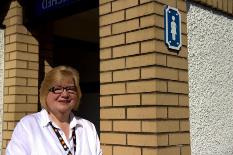
BTA Chairman featured on BBC TV.
Jasmine Wilson, Head of Cleaning Services at Ceredigion County Council, was featured on a recent TV series of four programmes transmitted on BBC Wales called Cardigan Bay Coastal Lives
Viewers will be shown a day in the life of Jasmine and her team as they continue on their mission to achieve the highest hygiene standards possible in the county’s public conveniences. Over the years Jasmine and her team have won many awards, primarily 18 Platinum Awards and 12 Gold Awards for the county’s facilities.
On her experience of taking part in the TV series, Jasmine said: “I am pleased to have been involved and to showcase both my own and the team’s commitment to our profession. I hope the viewers will have the opportunity to see what we achieve in our daily work, and to appreciate that it adds to their experience and comfort of living in or visiting our beautiful county and coastline.”
During her career at the council, Jasmine has received numerous prestigious awards and honors for her commitment to her field. In 2012 she was the recipient of a BTA Lifetime Achievement Award . Jasmine has been a member of the BTA Management Advisory Committee for several years and she became the current chair of the Association in April 2015.
Cardigan Bay Coastal Lives follows the rich and varied lives of some of those living along the coastline.
The series aired on:
Tuesday, 3rd November;
Thursday, 5th November;
Tuesday, 10th November;
Thursday, 12th November.
Stanton Bonna adds public toilets to portfolio!
Stanton Bonna adds public toilets to portfolio!
Stanton Bonna is part of the Consolis Group, Europe’s largest precast concrete producer, and is widely recognised as a leading UK manufacturer of concrete Drainage Systems, Pressure Systems, Railway Products and Specialist Precast solutions.
The company manufactures for the water, highways, rail, housing, telecom and power sectors of the construction industry.
Francioli is also part of the Consolis Group and are experts in Public Conveniences and Street Furniture. They have been successfully manufacturing and supplying these products throughout Europe for over 40 years.
Stanton Bonna Concrete Limited is the UK arm of Consolis and so now represents Francioli Public Toilets in the UK.
There are over 2,650 Francioli public toilets currently in service, including UK sites from Scotland to Cornwall.
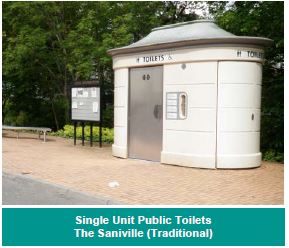 Francioli modern designs provide an attractive and durable solution with state-of-the-art systems. They are protected against vandalism and easy to maintain with semi-automated cleaning facilities and remote maintenance. The hardy exterior ensures it can withstand all weather conditions and comes in a variety of finishes to harmonise with the surrounding environment.
Francioli modern designs provide an attractive and durable solution with state-of-the-art systems. They are protected against vandalism and easy to maintain with semi-automated cleaning facilities and remote maintenance. The hardy exterior ensures it can withstand all weather conditions and comes in a variety of finishes to harmonise with the surrounding environment.
The range includes traditional and contemporary single units, modern multi-unit systems, the innovative box-in-box system for upgrading existing buildings and specialist public toilets adapted to the needs of the project, for example travelers sites or lorry parks.
For further information contact Colin Lawes on:
Public Health Wales Bill
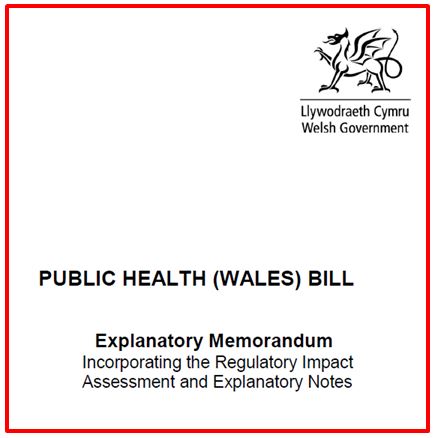
PUBLIC HEALTH WALES BILL (June 2015)
The BTA has been working and consulting with various government departments, commissioners, community groups and committees throughout the United kingdom to focus attention on the decline of public toilets across our country. We have discussed the plight of thousands of older persons who feel trapped because of these toilet closures and the increasing lack of good, clean public toilets available when they are away from home for any time or distance. Additionally the needs of many user groups who feel extremely vulnerable and at risk because of the lack of sufficient clean toilet facilities when they are out and about.
We are therefore delighted to announce that on Tuesday 9th June 2015 Mr Mark Drakeford AM, Minister for Health and Social Services and Assembly Member in charge of the Bill has today introduced the Public Health (Wales) Bill to the National Assembly for Wales
The Bill has several sections but importantly for us it includes a section directly relating to Toilets.
Under PUBLIC TOILETS it places a duty on each local authority in Wales to prepare and publish a local toilets strategy for its area. The Bill provides that this strategy must include an assessment of the community’s need for toilets, including changing facilities for babies and changing places facilities for disabled persons, as well as details of how the local authority proposes to meet that need.
Please feel free to share this information with any relevant networks and groups
The Bill brings together a range of practical actions for improving and protecting health. It focuses on shaping social conditions that are conducive to good health, and where avoidable health harms can be prevented.
If passed, the Bill will:
- restrict the use of tobacco and nicotine inhaling devices (such as e-cigarettes) in enclosed public places;
- create a national register of retailers of tobacco and nicotine products;
- prohibit the handing over of tobacco and nicotine products to under 18s;
- create a mandatory licensing scheme for businesses/practitioners carrying out acupuncture, body piercing, electrolysis and tattooing;
- prohibit intimate piercing on people under 16 years old;
- change the way pharmaceutical services are planned to meet the needs of local communities;
- require local authorities to plan for adequate access to toilet facilities for public use.
Provision of, and access to, toilets is an issue that affects public health. Accessible, clean toilets that are well located in places such as town centres, parks, promenades, cycle trails and walking routes can help encourage the public to take exercise and stay more physically active. This has clear health and economic benefits. Conversely, toilets that are poorly designed, inadequately maintained and inadequately located can create an atmosphere of neglect that discourages public use. A lack of adequate toilet facilities can also impact on an individual’s physical and mental health, as well as affecting the wider environmental health of the population.
The Welsh Government has previously sought to find creative solutions to help improve the provision of local toilets. The Public Facilities Grant Scheme was initially established in 2009/10 for three years to increase the provision of free public access to toilet facilities in Wales. This sought to improve the quality and accessibility of facilities by encouraging local authorities to work in partnership with local businesses to allow public access to their facilities. The scheme was extended annually from April 2012 before the funding (£200,000) was transferred into the Revenue Support Grant from 2014/15. It is now for each local authority to decide how this funding is utilised to deliver the range of services it is responsible for in order to meet the needs and priorities of its communities.
It is known that public toilet provision currently varies between local authorities. Discussions also indicate that there are pressures around the provision of facilities, leading to reductions in the number of public toilets in Wales in recent years.
The current legal position in relation to toilet facilities is set out in various pieces of primary and subordinate legislation. The provision and maintenance of toilets in public places is at the discretion of local authorities, including community councils, who have the power, under section 87 of the Public Health Act 1936, to provide public conveniences, but no duty to do so. Section 87 also allows local authorities to charge for the use of the toilets that they provide. A local authority has power under section 20 of the Local Government (Miscellaneous Provisions) Act 1976 to require toilets to be provided and maintained in any place providing entertainment, exhibitions, sporting events, and places serving food and drink for consumption on the premises. A local authority may also use powers under section 106 of the Town and Country Planning Act 1990 to make an agreement with a developer for the provision of toilets as part of the approved development. Where a local authority is a highway authority for a particular highway, section 114 of the Highways Act 1980 provides that it may provide public sanitary conveniences (including lavatories) in proper and convenient situations, and may manage such conveniences.
Whilst the current legislative framework enables local authorities to make provision for toilets, there are no legislative requirements on them to do so. It is for individual local authorities to decide whether or not to provide public toilets and, if so, how many. In doing this, each local authority must balance competing local demands for a broad range of public services against the need to avoid excessive burdens on local taxpayers.
The Bill’s provisions on local toilets strategies are ultimately intended to benefit local communities across Wales. Accordingly, the provisions seek to ensure that appropriate engagement with communities takes place as part of the development of the strategies, and that the process takes place in a manner which is both transparent and supports local accountability.
Local authorities will therefore be required to consult with interested parties on their draft strategies and to publish their final strategies so that they are available to be viewed. Whilst the Bill does not prescribe the format of the consultation process, it is expected that local authorities will take an inclusive approach in order to ensure appropriate engagement across their communities.
The BTA is extremely keen to support and help all local authorities to develop these future strategies and we will continue to work closely with the government departments, individuals and community groups to add our weight to delivering a programme of local solutions that will benefit all toilet users and providers.
Toilets are a major HEALTH & WELL-BEING issue . They also directly effect issues of EQUALITY and SOCIAL INCLUSION and the lack of good clean facilities has a significant impact on PUBLIC PRIVACY & DECENCY as we continue to see a disturbing rise in the reports of street urination and pavement fouling.
We congratulate the National Assembly for Wales and the Health Minister for initiating this first significant step towards introducing some strategic thinking and understanding around the correlation between Public Health and Public Toilets.



